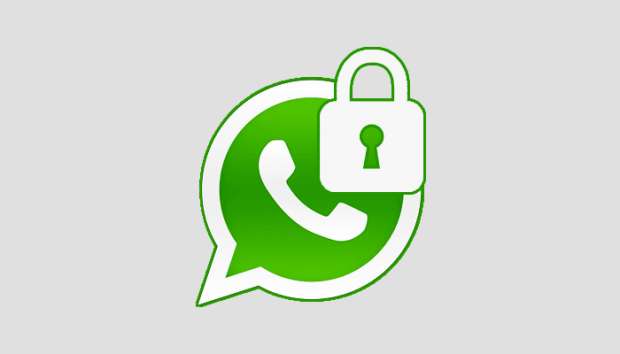
Currently ranked as the world's most popular instant messaging app, WhatsApp needs no introduction. The app can be used on both mobile and PC. Unlike mobile devices, however, WhatsApp can be used on a computer in two different ways: WhatsApp Web and WhatsApp Desktop. Both are great for accessing WhatsApp on PC, but which one should you use and why?
For starters, WhatsApp Web is the web interface of the instant messaging platform that can be accessed on a computer using a web browser. WhatsApp Desktop is a standalone app that you can install on Windows or Mac. In short, WhatsApp Web is a browser-based version of WhatsApp while WhatsApp Desktop is the WhatsApp app for computers. But what's more?
- Whatsapp Web complete guide
Interface and functionality
Both WhatsApp Web and WhatsApp Desktop are designed similarly so that they both have (almost) the same design, functionality and messaging experience. On both interfaces, buttons, tools and icons are arranged similarly. From a design standpoint, WhatsApp Web offers the same aesthetic as WhatsApp Desktop.
In terms of functionality, WhatsApp Desktop surpasses WhatsApp Web. For the latter, keyboard shortcuts are limited and unsupported. Only users of the WhatsApp Desktop app will be able to use WhatsApp keyboard shortcuts to change the reading status of messages, deactivate chats, move between chats and much more. Keyboard shortcut aside, everything else (design and functionality) remains the same.
Availability: where you can find them
WhatsApp Web and WhatsApp Desktop can be used by anyone with a WhatsApp account. To use WhatsApp Web, simply visit the WhatsApp web portal on your browser and scan the QR code using the WhatsApp app on your smartphone.
For WhatsApp Desktop, you should download and install the app installation file on your computer. After installation, the next step is to link your WhatsApp account to the desktop app by scanning a QR code using the WhatsApp app on your smartphone.
- Download WhatsApp Desktop for Windows
- Download WhatsApp Desktop for Mac
Which one uses more memory
Comparing the memory usage of both interfaces yielded some interesting results. For WhatsApp Web, the Microsoft Edge browser was used to experiment because it generally uses less memory than Chrome. With my WhatsApp account actively running on a single tab in the Microsoft Edge browser, an average of 260-300MB was used.
Final report: it is important to know that the activities in progress (eg status updates, incoming messages, etc.) within the WhatsApp Web on the browser could interfere with the level of memory consumption. For this experiment, however, messaging activities were kept minimal and constant.
For WhatsApp Desktop, memory usage on average is between 210 and 260 MB. While the margin is not too large, the memory consumption of the WhatsApp Desktop app is relatively lower than WhatsApp Web.
Requirements: what you need
Both the WhatsApp Web and WhatsApp Desktop interfaces require WhatsApp to be installed on your mobile device (smartphone, tablet, etc.) before you can use them. Also, the phone must have an active Internet connection.
A web browser and an active internet connection are all you need to use WhatsApp Web on your computer. WhatsApp recommends Chrome, Firefox, Opera, Safari or Microsoft Edge browsers.
For WhatsApp Desktop, only computers running Windows 8 (or later) or macOS 10.10 (or later) will be able to install the app. You don't have to worry about the requirements. As soon as you visit the download section on the WhatsApp website, your computer's operating system version will be determined automatically and a download link for the WhatsApp Desktop app will be provided.
- Download WhatsApp Desktop
What we find more about the mobile application
Compared to the WhatsApp app on your smartphone, here are some of the missing features on both WhatsApp Desktop and WhatsApp Web.
- Voice calls.
- Video calls (individual and group video calls).
- Status Upload: It is not possible to upload / update status on WhatsApp web interfaces. However, viewing contact status updates is supported.
If you are going to do any of the above, you need to use the WhatsApp app on your smartphone.
Which one should you use?
Should you install the WhatsApp Desktop app on your computer or should you continue using WhatsApp Web on your browser? Well, it all depends on how often you use your PC, how often you use WhatsApp on your PC, and if you have any special needs.
If you are a heavy user of WhatsApp (on your PC, that is), installing the WhatsApp Desktop client makes more sense. One, you have access to keyboard shortcuts that can help you increase your productivity. Secondly, your PC would have spare RAM to run other processes as WhatsApp Desktop consumes less memory. Finally, WhatsApp Desktop is convenient and time-saving.
WhatsApp Web is perfect for occasional or occasional use, let's say you need to send a file on your computer to a colleague via WhatsApp.
The frequency of use is an important factor
WhatsApp Desktop is recommended for individuals or companies that heavily use WhatsApp on their computers for communication. That said, it's not the perfect solution. A loophole in the WhatsApp Desktop app allowed developers to retrieve user details as the recent but known vulnerable version of Chrome 69, Google's Chrome browser engine, was used to build the app. The browser-based WhatsApp Web, on the other hand, would be sufficient for those who use WhatsApp briefly or briefly on their computer.
Further Reading:
- Whatsapp Web your Android
- How to use WhatsApp on your Apple Watch
- WhatsApp Won't Open on PC, 7 Solutions
- How to use WhatsApp on multiple devices
- How to speed up Whatsapp audio messages on PC and phone
Deprecated: Automatic conversion of false to array is deprecated in /home/epictrick.com/htdocs/php/post.php on line 612






